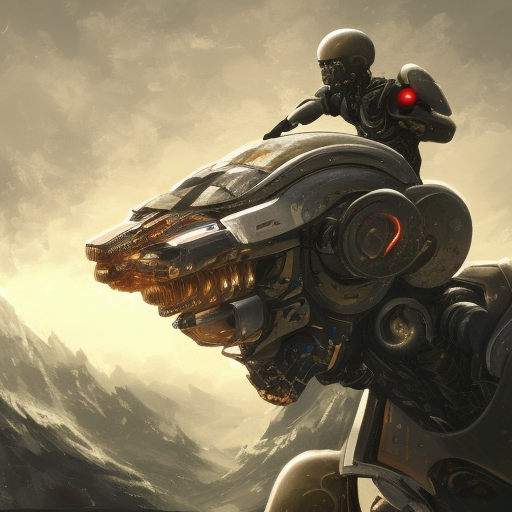
If Artificial General Intelligence has an okay outcome, what will be the reason?
13
Ṁ1.4kṀ2.6k2201
19%
K. Somebody discovers a new AI paradigm that's powerful enough and matures fast enough to beat deep learning to the punch, and the new paradigm is much much more alignable than giant inscrutable matrices of floating-point numbers.
10%
I. The tech path to AGI superintelligence is naturally slow enough and gradual enough, that world-destroyingly-critical alignment problems never appear faster than previous discoveries generalize to allow safe further experimentation.
8%
C. Solving prosaic alignment on the first critical try is not as difficult, nor as dangerous, nor taking as much extra time, as Yudkowsky predicts; whatever effort is put forth by the leading coalition works inside of their lead time.
7%
D. Early powerful AGIs realize that they wouldn't be able to align their own future selves/successors if their intelligence got raised further, and work honestly with humans on solving the problem in a way acceptable to both factions.
7%
Something wonderful happens that isn't well-described by any option listed. (The semantics of this option may change if other options are added.)
6%
M. "We'll make the AI do our AI alignment homework" just works as a plan. (Eg the helping AI doesn't need to be smart enough to be deadly; the alignment proposals that most impress human judges are honest and truthful and successful.)
6%
B. Humanity puts forth a tremendous effort, and delays AI for long enough, and puts enough desperate work into alignment, that alignment gets solved first.
6%
O. Early applications of AI/AGI drastically increase human civilization's sanity and coordination ability; enabling humanity to solve alignment, or slow down further descent into AGI, etc. (Not in principle mutex with all other answers.)
6%
A. Humanity successfully coordinates worldwide to prevent the creation of powerful AGIs for long enough to develop human intelligence augmentation, uploading, or some other pathway into transcending humanity's window of fragility.
5%
E. Whatever strange motivations end up inside an unalignable AGI, or the internal slice through that AGI which codes its successor, they max out at a universe full of cheerful qualia-bearing life and an okay outcome for existing humans.
4%
J. Something 'just works' on the order of eg: train a predictive/imitative/generative AI on a human-generated dataset, and RLHF her to be unfailingly nice, generous to weaker entities, and determined to make the cosmos a lovely place.
4%
F. Somebody pulls off a hat trick involving blah blah acausal blah blah simulations blah blah, or other amazingly clever idea, which leads an AGI to put the reachable galaxies to good use despite that AGI not being otherwise alignable.
3%
H. Many competing AGIs form an equilibrium whereby no faction is allowed to get too powerful, and humanity is part of this equilibrium and survives and gets a big chunk of cosmic pie.
3%
L. Earth's present civilization crashes before powerful AGI, and the next civilization that rises is wiser and better at ops. (Exception to 'okay' as defined originally, will be said to count as 'okay' even if many current humans die.)
2%
G. It's impossible/improbable for something sufficiently smarter and more capable than modern humanity to be created, that it can just do whatever without needing humans to cooperate; nor does it successfully cheat/trick us.
1.2%
If you write an argument that breaks down the 'okay outcomes' into lots of distinct categories, without breaking down internal conjuncts and so on, Reality is very impressed with how disjunctive this sounds and allocates more probability.
1.1%
N. A crash project at augmenting human intelligence via neurotech, training mentats via neurofeedback, etc, produces people who can solve alignment before it's too late, despite Earth civ not slowing AI down much.
Duplicate of https://manifold.markets/EliezerYudkowsky/if-artificial-general-intelligence except you're allowed to short options
This question is managed and resolved by Manifold.
Market context
Get  1,000 to start trading!
1,000 to start trading!
People are also trading
Related questions
If Artificial General Intelligence has an okay outcome, what will be the reason?
If Artificial General Intelligence has an okay outcome, what will be the reason?
Why will "If Artificial General Intelligence has an okay outcome, what will be the reason?" resolve N/A?
If Artificial General Intelligence has a poor outcome, what will be the reason?
If Artificial General Intelligence (AGI) has an okay outcome, which of these tags will make up the reason?
[Independent MC Version] If Artificial General Intelligence has an okay outcome, what will be the reasons?
Will Eliezer's "If Artificial General Intelligence has an okay outcome, what will be the reason?" market resolve N/A?
34% chance
If we survive general artificial intelligence, what will be the reason?
If we survive general artificial intelligence before 2100, what will be the reason?
When artificial general intelligence (AGI) exists, what will be true?